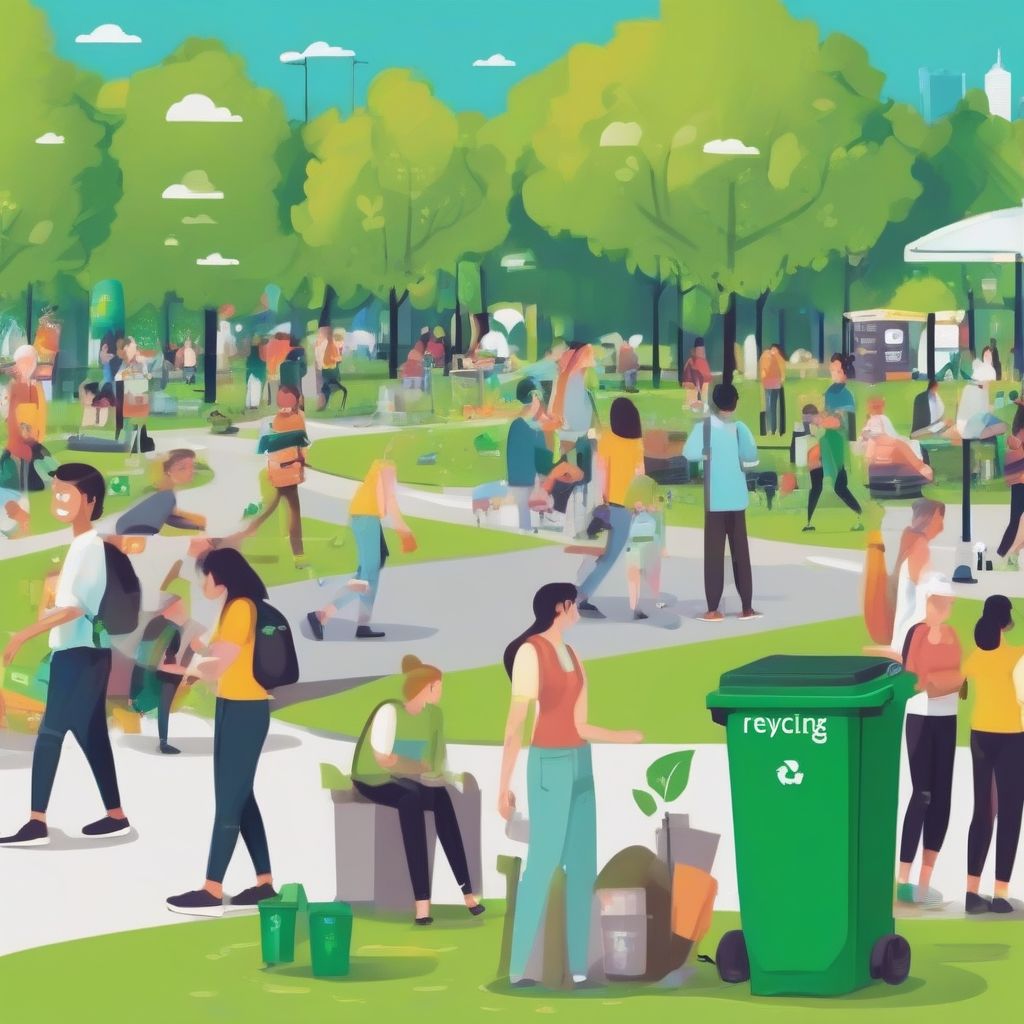Imagine a city where the air is clean and fresh, the streets are free of litter, and the environment thrives. This isn’t a utopian dream; it’s the potential reality when urban environments prioritize waste reduction. The impact of reducing, reusing, and recycling goes beyond keeping our cities tidy; it’s a transformative force that touches upon every facet of urban life.
A Healthier City for All
Waste, especially when mismanaged, poses significant health risks. Open dumps and landfills pollute the air and water, becoming breeding grounds for disease-carrying pests. These factors disproportionately affect vulnerable populations living in close proximity to such sites.
 Reducing Waste in a City Park
Reducing Waste in a City Park
By embracing waste reduction strategies, cities can mitigate these risks. Investing in modern waste management systems, including composting and recycling programs, minimizes pollution and reduces the burden on landfills. The result is a cleaner, healthier environment for all residents.
An Economic Engine Reimagined
Waste isn’t just an environmental issue; it’s an economic one. Traditional linear economies, where resources are extracted, used, and discarded, are unsustainable. The economic benefits of waste reduction are multifold:
- Job Creation: Transitioning towards a circular economy, where waste is viewed as a resource, opens doors to new industries and job opportunities in areas like recycling, composting, and upcycling.
- Resource Efficiency: Reusing and recycling materials reduces the demand for virgin resources, lowering extraction costs and decreasing reliance on imports.
- Innovation and Entrepreneurship: Waste reduction fosters innovation by encouraging businesses and individuals to find creative ways to repurpose materials and develop sustainable products.
Building a Sustainable Future
As our global population becomes increasingly urbanized, the need for effective waste management becomes even more critical. Urban environments are at the forefront of this challenge, and their success in implementing waste reduction strategies has far-reaching consequences.
Key Strategies for Effective Urban Waste Reduction
-
Source Reduction: Encouraging residents to reduce waste generation in the first place through mindful consumption, product choices, and composting organic materials.
-
Improved Recycling Programs: Expanding access to convenient and comprehensive recycling programs that encompass a wide range of materials.
-
Extended Producer Responsibility: Implementing policies that hold producers accountable for the entire lifecycle of their products, including end-of-life management.
-
Community Engagement and Education: Raising awareness about the importance of waste reduction and empowering residents to adopt sustainable practices.
The Power of Collective Action
Waste reduction isn’t solely the responsibility of governments or businesses; it’s a collective effort that requires the participation of every individual. Small changes in our daily habits can make a significant impact:
-
Choose reusable alternatives: Opt for reusable bags, water bottles, and food containers to minimize single-use plastic waste.
-
Compost organic materials: Start composting food scraps and yard waste to reduce the amount of organic waste sent to landfills.
-
Support businesses with sustainable practices: Choose to patronize businesses that prioritize waste reduction and sustainable sourcing.
[amazon bestseller=”zero waste”]
A Legacy of Change
The impact of waste reduction on urban environments is profound and multifaceted. It’s about creating healthier, more livable cities for present and future generations. It’s about fostering economic growth while safeguarding our planet’s resources. Ultimately, it’s about embracing a sustainable future where waste is minimized, resources are valued, and cities thrive in harmony with the environment.
Let’s join hands and make this vision a reality. Share your thoughts, ideas, and actions on waste reduction in the comments below!
